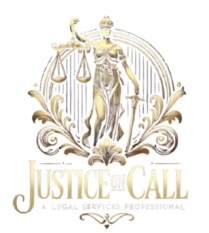
Evidence is the foundation of every legal dispute. At Justice On Call, we understand that having the right materials—presented the right way—can make the difference between dismissal and justice. Whether you’re dealing with eviction, discrimination, fraud, or abuse, proper submission of supporting material is essential.
What Is a Simple Definition of Evidence?
Evidence refers to anything that helps establish the truth in a legal setting. This includes documents, recordings, photographs, witness accounts, and official reports. It’s what gives your case legal traction, turning claims into facts that can be assessed fairly.
We use various forms of documentation to support our clients’ cases—organized, clear, and ready for review. For a practical example, see our case evidence analysis.
What Are the Four Types of Evidence?
There are four primary categories of supporting material used in legal proceedings:
-
Documentary – contracts, forms, written communication
-
Physical/Real – photos, property damage, tampered items
-
Testimonial – statements, affidavits, oral submissions
-
Demonstrative – charts, timelines, or diagrams that explain a sequence of events
Each category plays a unique role in shaping your case and meeting legal requirements.
What Is the Synonym of Evidence?
Depending on context, common terms used in place of “evidence” include:
-
Proof
-
Verification
-
Corroboration
-
Testimony
-
Supporting records
-
Substantiation
-
Documentation
Each synonym reflects a specific legal nuance, from establishing facts to reinforcing already known details.
Is Evidence the Same as Proof?
While closely related, the two terms are not identical. The first refers to the materials introduced during a proceeding, while proof is the outcome—a confirmed fact based on the strength of those materials.
Courts rely on legal standards such as the Evidence Act, R.S.O. 1990, c. E.23 and the federal Canada Evidence Act to determine whether submitted materials can be considered reliable and admissible.
How Justice On Call Supports You
Our role is to help you gather and present your materials in a way that aligns with legal standards. We assist with:
-
Organizing your case records
-
Structuring Exhibit Books for hearings
-
Spotting altered or misleading submissions
-
Ensuring admissibility and procedural compliance
We don’t just believe your story—we help you present it with strength and structure.
